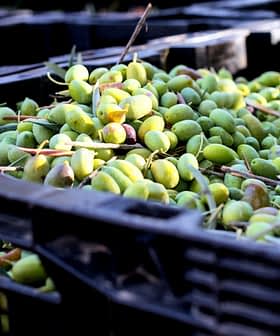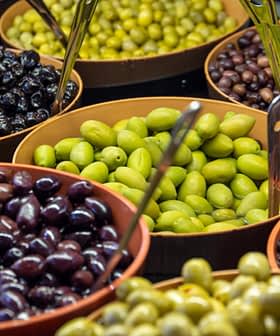European Exporters to Benefit From Collapse of US Import Tax Proposal
Large American retailers succeeded in stopping plans for hundreds of millions of dollars in new taxes on olive oil imports into the United States.
Congressional Republicans in the United States have abandoned a proposed 20 percent tax on imported goods, including European olive oil, which would have put exporters at a competitive disadvantage. The demise of the Border Adjustment Tax (BAT) suggests that European olive oil products will not face a sudden cost increase in the American retail market, relieving pressure on retailers and consumers.
On Thursday, congressional Republicans in the United States dropped a proposal for a 20 percent tax on imported goods as part of a broader tax reform plan. The Border Adjustment Tax (BAT) would have put European olive oil producers at a competitive disadvantage in relation to their American counterparts.
European exporters, who account for the vast majority of the $2 billion of olive oil sales in the United States, could have faced hundreds of millions of dollars in new taxes under the proposed plan. The demise of the BAT suggests that European olive oil products will probably not face a sudden cost increase in the American retail market as a result of federal tax reform legislation anytime soon.
Olive oil exporters in Europe have already been grappling with increasing price pressures in the United States due to a lackluster harvest in 2016, surging global demand, and recent declines in the dollar/euro exchange rate. The purchasing power of American retailers who import olive oil from abroad would have been further diminished by the introduction of the BAT.
Retail establishments of all sizes in the United States, including Walmart and Target, were vehemently opposed to the proposal. The tax would have placed pressure on retailers to pass on the new expense to consumers through increased prices, sparking fears of a possible decline in consumer spending. As a result, opponents of the tax were able to successfully dissuade lawmakers by citing probable damage to retail companies — an industry that is currently enduring massive disruptions brought about by new technology.
Proponents of the BAT plan had hoped to encourage greater production of olive oil and other goods inside the borders of the United States by making imports more expensive. American exporters of olive oil would have been exempt from the tax but may have faced the imposition of retaliatory tariffs by foreign governments. While most American olive oil exports go to Canada and Mexico and would have been relatively immune to trade disputes with Europe, US exporters will face a new round of uncertainty as the Trump administration initiates talks to renegotiate the North American Free Trade Agreement (NAFTA) in August.
Tax reform has long been a centerpiece of the Republican agenda in Washington. The import tax, which was projected to have raised $1 trillion over the course of 10 years, was designed to offset large proposed cuts to the American corporate income tax rate, which currently stands at 35 percent. However, without an income source to offset the proposed reduction in the corporate tax rate to 15 or 20 percent, the federal budget deficit would skyrocket.
The full implications for European olive oil exporters of the collapse of Washington’s proposed protectionist measures will probably become more clear as Congress returns from its August holiday recess and the 2017 harvest begins in earnest. However, the mere threat of a 20 percent import tax invariably has many European producers evaluating their strategies on how to secure affordable access to the growing American olive oil market.









